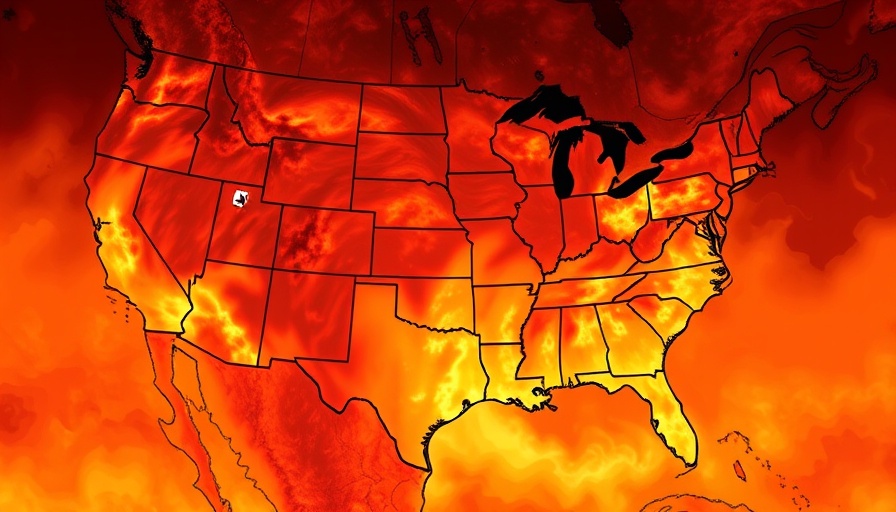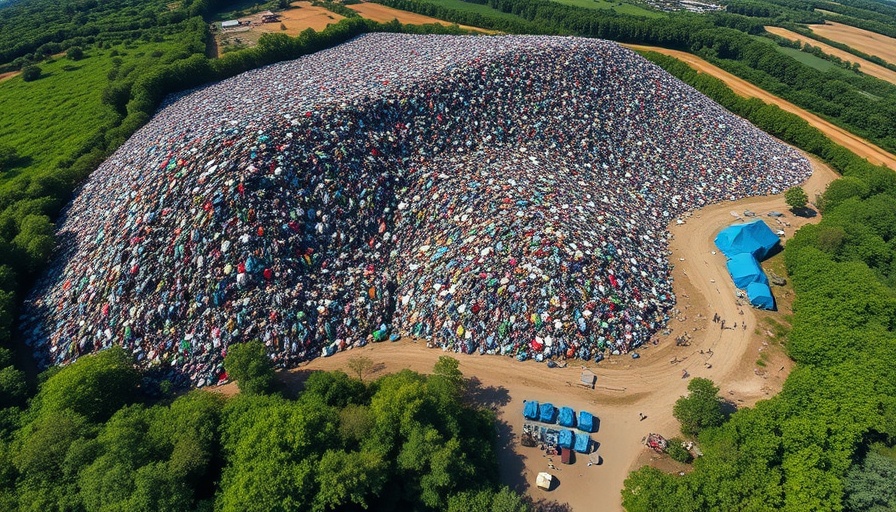
The Alarming Decline of Insects: A Key Ecological Indicator
Insects are often overlooked, but they play a crucial role in our ecosystems. Recent surveys reveal a staggering decline in insect populations, with the UK reporting a 63 percent fall since 2021, indicating a disturbing trend that could have profound implications for biodiversity and food security. Homeowners and property investors should recognize that declines in insect numbers not only affect garden aesthetics but also the overall health of the ecosystem where they live.
Why Pollinators Matter for Property Owners
Homebuyers and sellers, especially those considering properties with gardens or outdoor spaces, should understand the significance of pollinating insects. These tiny creatures are responsible for about 80 percent of flowering plants’ pollination, crucial for the production of fruits, vegetables, and nuts. By fostering environments that support these pollinators, we can enhance the beauty and productivity of gardens, leading to more valuable properties. It’s a sustainable investment not just for buyers but for the health of our shared environment.
Making Simple Changes for a Big Impact
Even small adjustments can contribute positively to the insect population. One effective strategy is turning off unnecessary outdoor lighting at night. Artificial lights can disorient moths and other insects that rely on the moon for navigation. By limiting light pollution, homeowners can protect the sensitive ecological balance and benefit from a healthier, more vibrant environment.
Boosting Biodiversity with Native Plants
Another straightforward way to help insect populations thrive is through gardening choices. Adopting the '3 x 3 x 3' planting method—choosing three native flowering species for each growing season—ensures that pollinators have a diverse and continuous food source throughout the year. Mindfully incorporating keystone plants that cater to specific life stages of various insects is equally important. This helps sustain caterpillar populations that are essential for the lifecycle of many butterflies and moths.
The Power of Grass and Leaves
Homeowners should also consider letting their leaves lie and allowing grasses to grow a little wild. A well-maintained lawn can coexist with natural habitats, creating a rich ecosystem where many insects thrive. Leaving some fallen branches, leaves, and even letting a portion of the yard grow wild can provide essential habitats for numerous beneficial insects.
Creating Water Sources for Insects
Providing small water sources is another simple yet impactful way to support insect life. Birds and insects alike need access to water, especially during hot and dry times. A shallow dish filled with water can serve as a life-saving resource for many insects. By fostering such small ecosystems, not only do we help the insect world, but we also create more inviting gardens for ourselves and prospective buyers.
Let’s Take Action Together
As potential property owners or sellers, it’s crucial to think beyond individual gardens and consider our collective impact on ecosystems. A few thoughtful changes can lead to lasting improvements in local biodiversity, making properties more attractive to buyers who value sustainability and ecological responsibility in their new homes.
 Add Row
Add Row  Add
Add 





 Add Row
Add Row  Add
Add 








Write A Comment